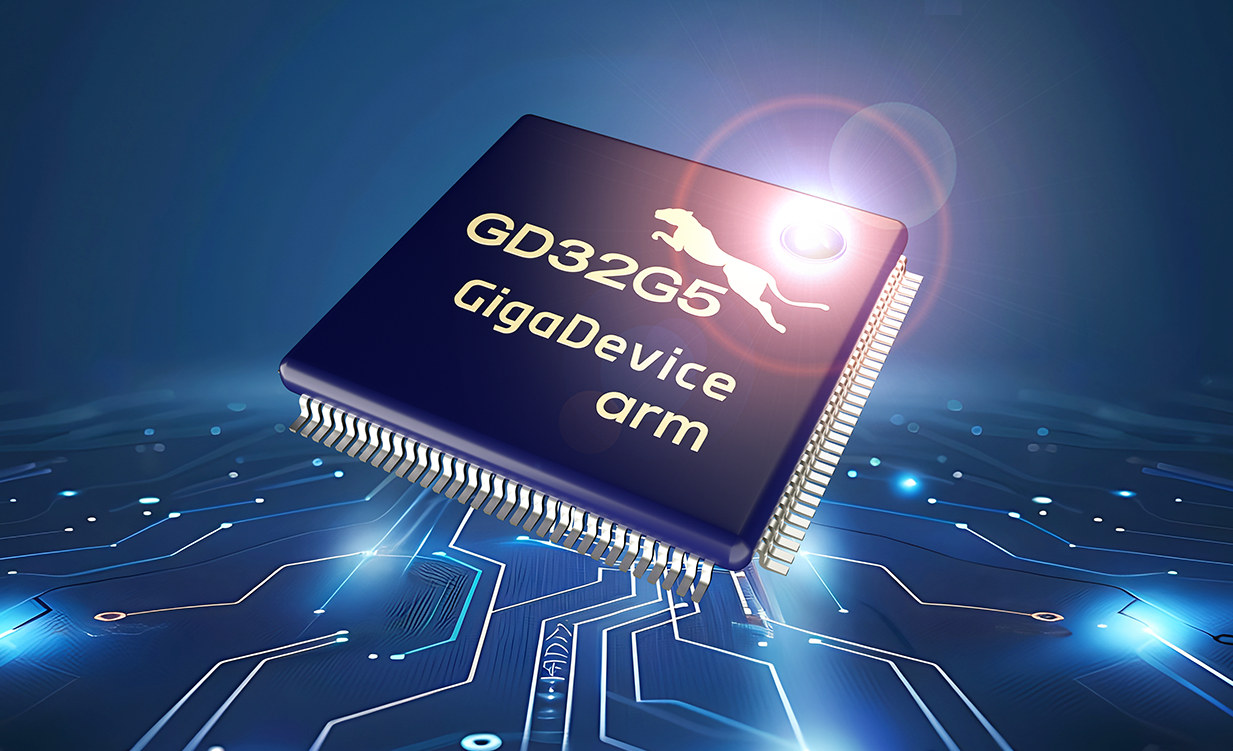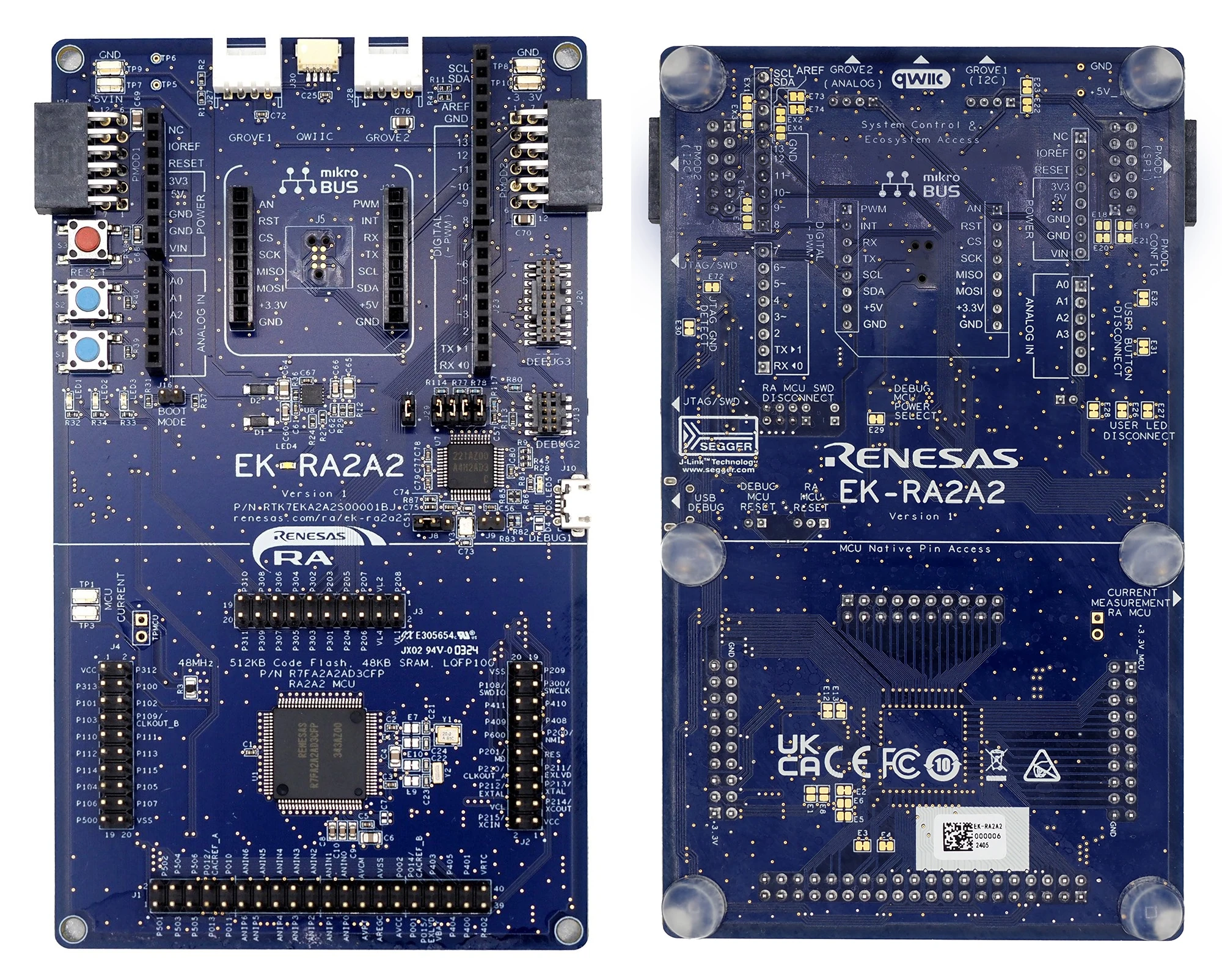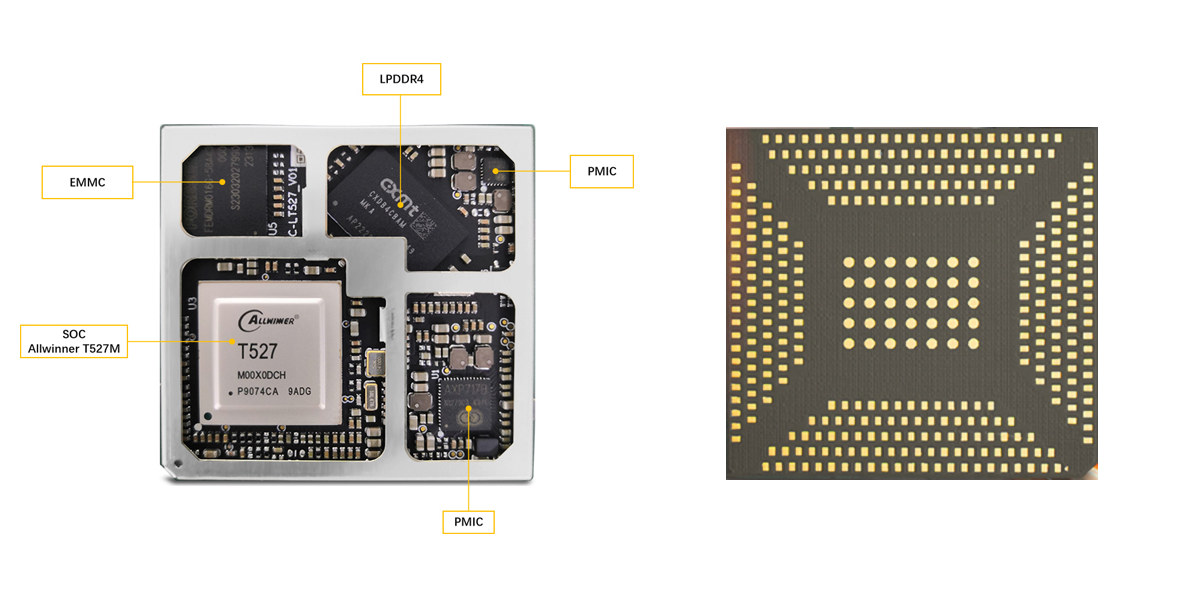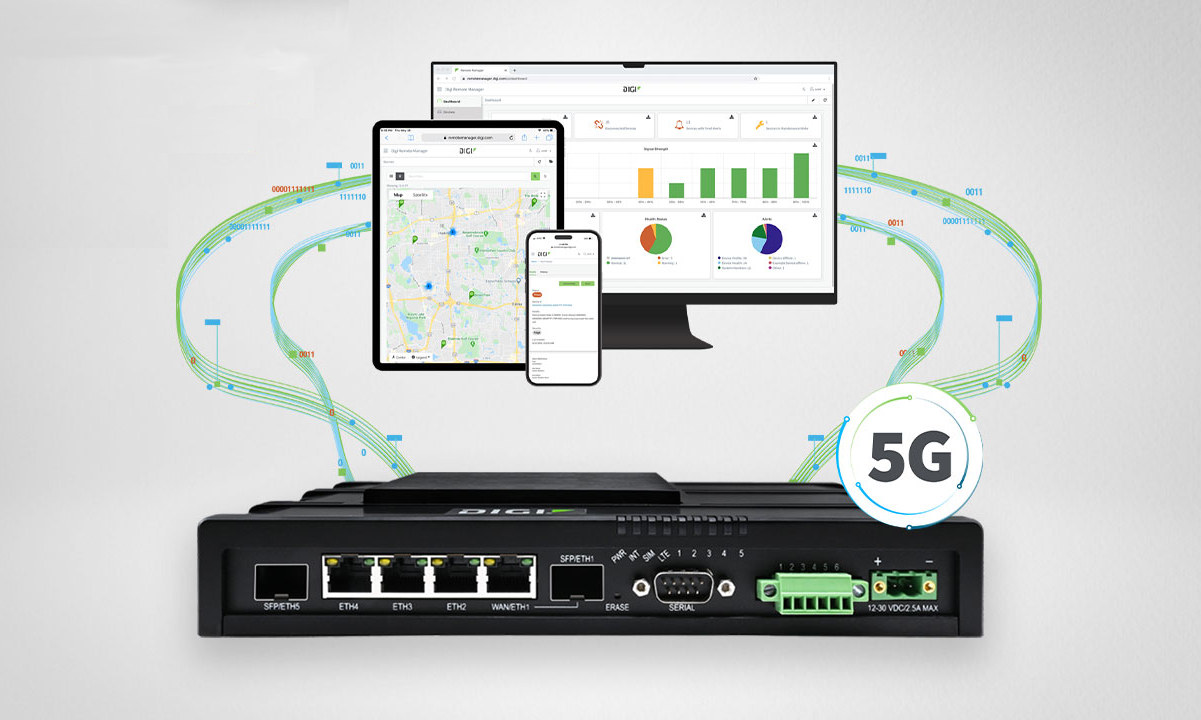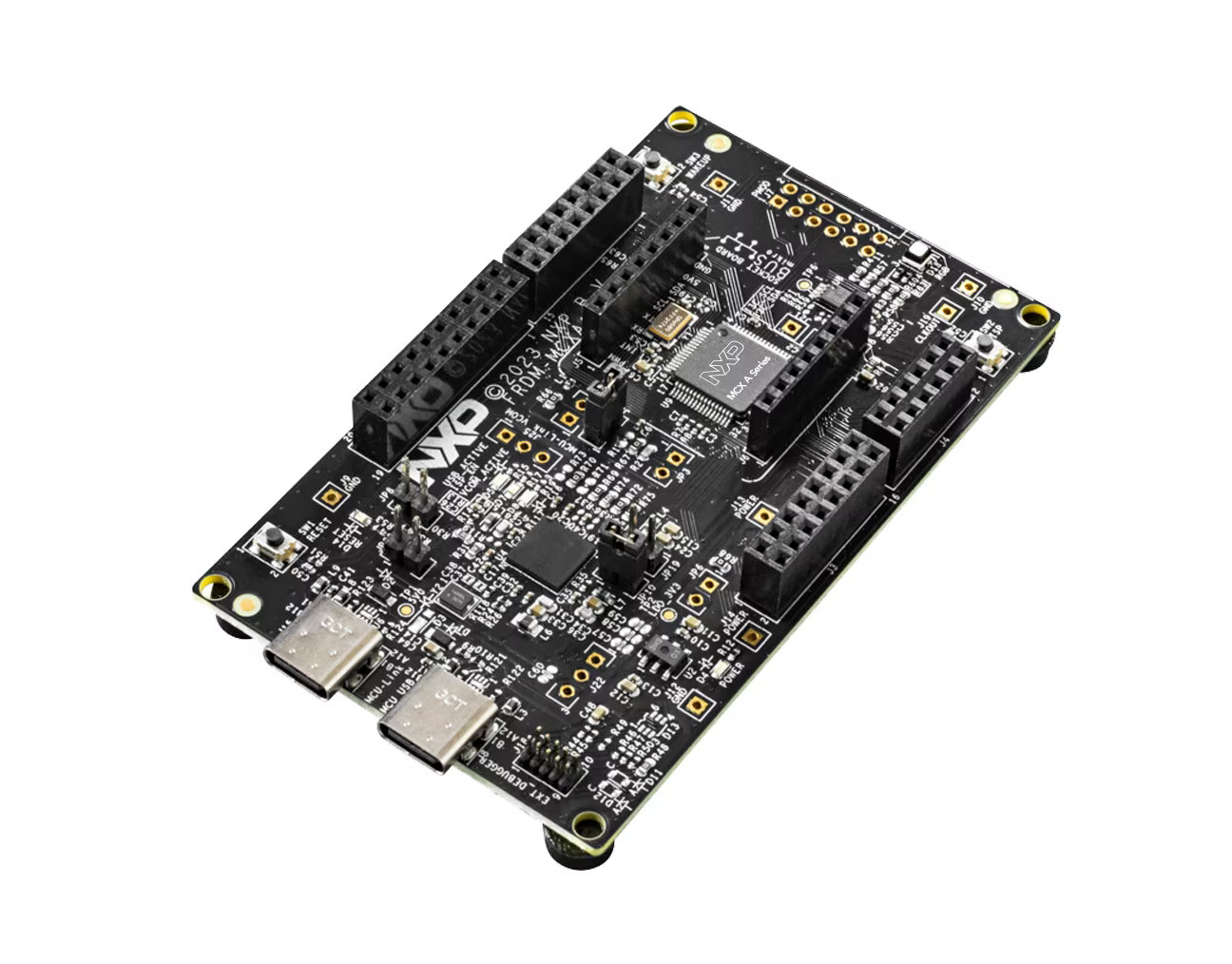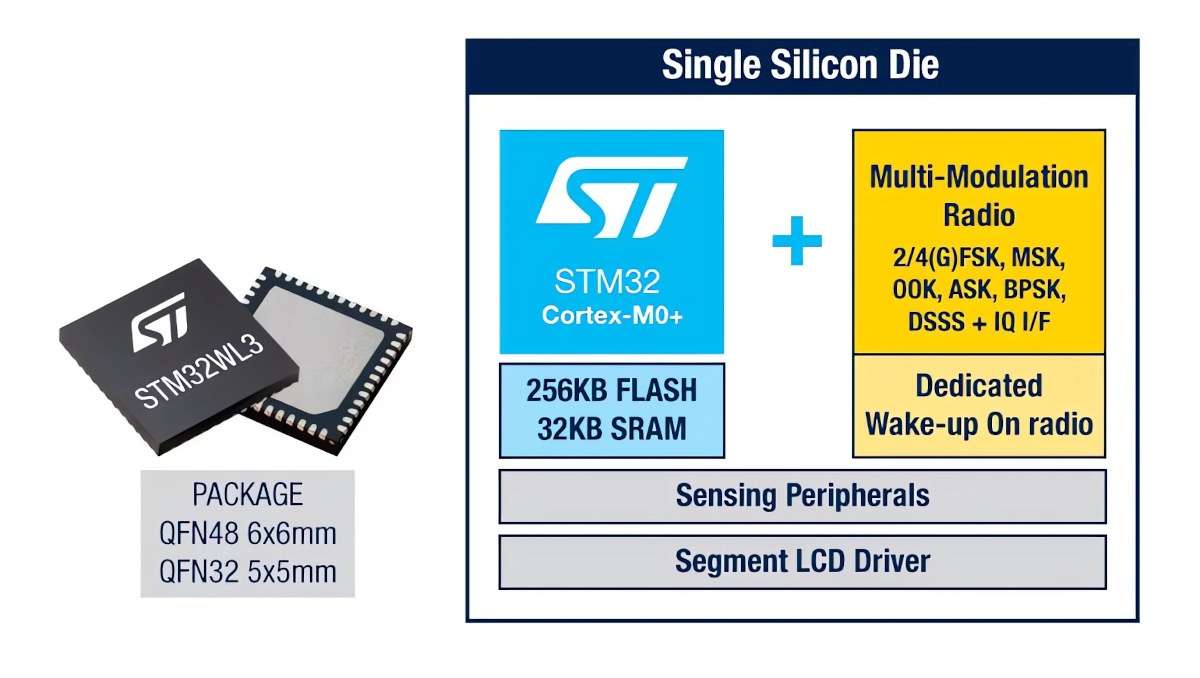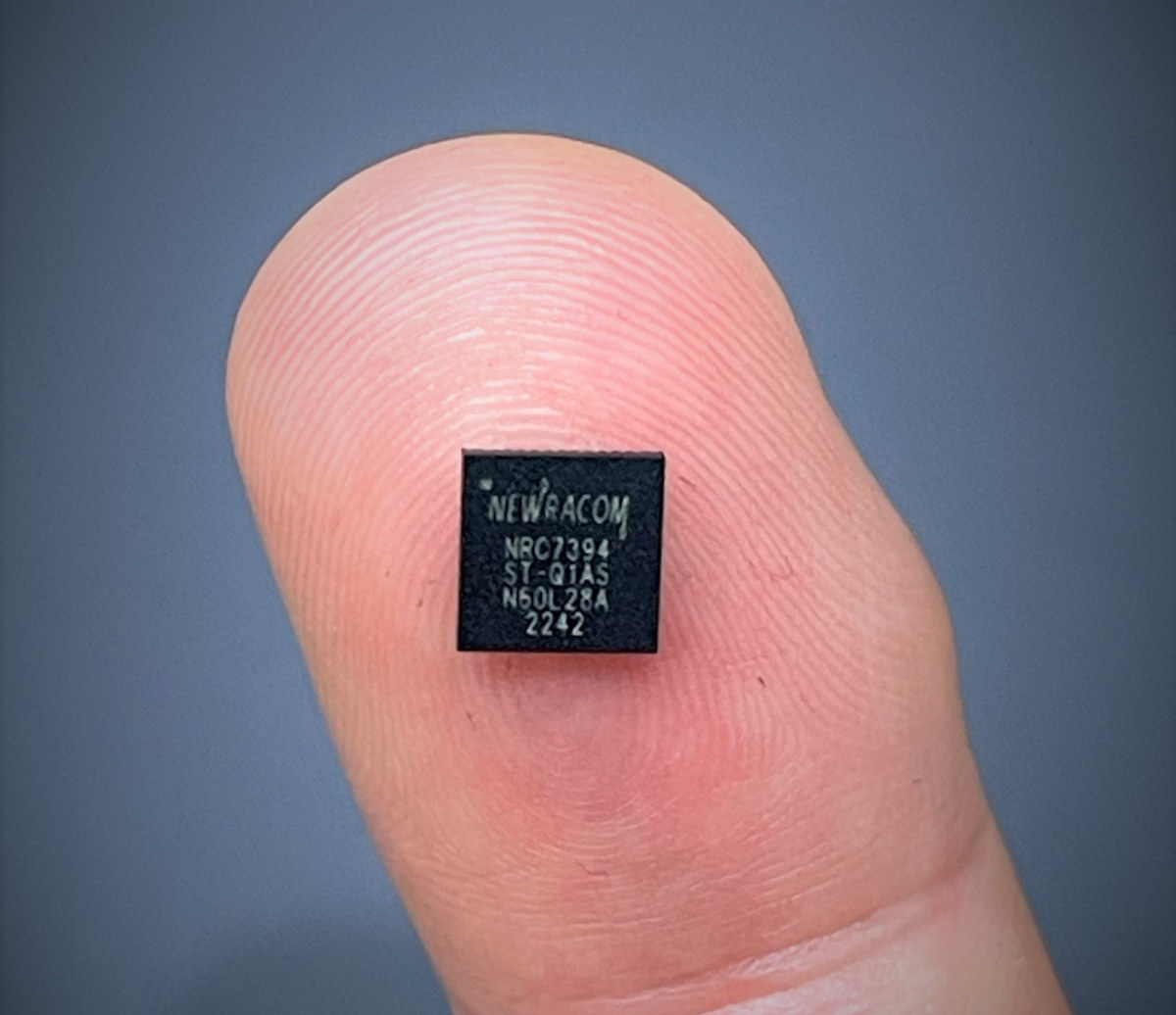Starting with the GD32G553 SKUs, the 216 MHz GigaDevice GD32G5 high-performance Arm Cortex-M33 microcontroller family features 256KB to 512KB of embedded Flash with dual-bank Flash support, 128KB of SRAM, and a range of hardware accelerators including a DSP, single-precision FPU, a trigonometric function accelerator (TMU), and other hardware acceleration units, filter algorithms (FAC) and Fast Fourier Transform (FFT). Designed for industrial applications, the GD32G5 microcontrollers also offer a wide range of digital and analog interfaces and enhanced security capabilities suitable for digital power systems, charging stations, energy storage inverters, frequency converters, servo motors, and optical communication. GigaDevice GD32G5 specifications: MCU Core – Arm Cortex-M33 Armv8-M core clocked at up to 216MHz with DSP instruction set and single-precision FPU; up to 316 DMIPS, CoreMark score: 694. Memory/Storage 128KB SRAM (80KB SRAM0 + 16KB SRAM1 + 32KB TCMSRAM) 256KB to 512KB on-chip flash, QSPI interface for external storage External memory controller (EXMC) […]
Renesas RA2A2 Arm Cortex-M23 microcontroller offers high-resolution 24-bit ADC, up to 512KB dual-bank flash
Renesas Electronics RA2A2 Arm Cortex-M23 microcontroller (MCU) group offers a 7-channel high-resolution 24-bit Sigma-Delta ADC, as well as dual-bank flash and bank swap function for an easier implementation of firmware over-the-air (FOTA) updates. The 48MHz MCU also comes with 48KB SRAM, up to 512KB code flash, various interfaces, and safety and security features that make it suitable for smart energy management, building automation, medical devices, consumer electronics, and other IoT applications that can benefit from high-resolution analog inputs and firmware updates. Renesas RA2A2 specifications: MCU core – Arm Cortex-M23 Armv8-M core clocked at up to 48 MHz Arm Memory Protection Unit (Arm MPU) with 8 regions Memory 48 KB SRAM Memory Protection Units (MPU) Memory Mirror Function (MMF) Storage Up to 512 KB code flash memory in dual bank (256 KB × 2 banks); bank swap support 8 KB data flash memory (100,000 program/erase (P/E) cycles) Peripheral interfaces Segment LCD […]
Allwinner T527 System-on-Module features octa-core Cortex-A55 CPU, 2 TOPS AI accelerator
MYiR MYC-LT527 is a compact System-on-Module (SoM) based on Allwinner T527 octa-core Arm Cortex-A55 SoC with a 2 TOPS AI accelerator, up to 4GB RAM, 32GB flash, and a land grid array (LGA) comprised of 381 pads with a range of interfaces for displays and cameras, networking, USB, and PCIe, and more. The company also introduced the MYD-LT527 development board to showcase the capabilities of the Allwinner T527 CPU module suitable for a range of applications such as industrial robots, energy and power management, medical equipment, display and controller machines, edge AI boxes and boards, automotive dashboards, and embedded devices that require media and AI functionalities. MYC-LT527 Allwinner T527 System-on-Module MYC-LT527 specifications: SoC – Allwinner T527 CPU Octa-core Arm Cortex-A55 processor with four cores @ 1.80 GHz and four cores @ 1.42GHz E906 RISC-V core up to 200 MHz DSP – 600MHz HIFI4 Audio DSP GPU – Arm Mali-G57 MC1 […]
Digi IX40 5G edge computing industrial IoT cellular gateway is designed for Industry 4.0 use cases
Digi IX40 is a 5G edge computing industrial IoT cellular router solution designed for Industry 4.0 use cases such as advanced robotics, predictive maintenance, asset monitoring, industrial automation, and smart manufacturing. The IIoT gateway is based on an NXP i.MX 8M Plus Arm processor running a custom Linux distribution, and besides 5G and 4G LTE cellular connectivity, offers gigabit Ethernet networking with 6 RJ45 and SFP ports, GNSS for geolocation and time, as well as digital and analog I/Os and an RS232/RS422/RS485 serial interface supporting Modbus. Digi IX40 specifications: SoC – NXP i.MX 8M Plus Arm Cortex-A53 processor @ 1.6 GHz with 2.3 TOPS NPU System Memory – 1GB RAM Storage – 8GB eMMC flash Wireless Cellular IX40-05 5G NSA, 5G SA, 4G LTE-ADVANCED PRO CAT 19 5G NR bands – n1, n2, n3, n5, n7, n8, n12, n13, n14, n18, n20, n25, n26, n28, n29, n30, n38, n40, n41, […]
NXP launches MCX A14x and MCX A15x Arm Cortex-M33 MCUs along with FRDM-MCXA153 development board
NXP has just announced the launch of the MCX A series Arm Cortex-M33 microcontrollers with the MCX A14x running up to 48 MHz and the MCX A15x running up to 96 MHz. The devices support up to 128KB flash and 32KB SRAM, offer I2C, I3C, and SPI sensor interfaces, and integrate support for BLDC/PMSM motor control. NXP first unveiled the NXP MCX general-purpose Arm MCU family with 30 times faster machine learning at Embedded World 2022, but at the time we had limited information although four series were planned with the MCX N Advanced series up to 250 MHz, the MCX A essential series up to 96 MHz, the MCX W Wireless series with Bluetooth LE, and the MCX L Low-power series. The MCX A series has just been launched, and the high-end MCX N also has its own product page with the N94x and N54x variants. We’ll focus on […]
FOSDEM 2024 schedule – Open-source embedded, mobile, IoT, robotics, RISC-V, etc..
FOSDEM – which stands for Free and Open Source Software Developers’ European Meeting – is a free-to-participate event where thousands of developers meet in Brussels on the first week-end of February to discuss open-source software & hardware projects. FOSDEM 2024 will take place on February 3-4 with 880 speakers, 818 events, and 66 tracks. Although I won’t attend, I’ve created a virtual schedule like every year with sessions most relevant to the topics covered on CNX Software from the “Embedded, Mobile and Automotive” and “Open Hardware and CAD/CAM” devrooms, but also other devrooms including “FOSS Mobile Devices”, “ Energy: Reimagining this Ecosystem through Open Source”, “RISC-V”, and others. FOSDEM Day 1 – Saturday, February 3, 2024 10:30 – 10:55 – Screen Sharing on Raspberry Pi 5 Using VNC in Weston and Wayland with the Yocto Project and OpenEmbedded by Leon Anavi In 2023, embedded Linux developers received eagerly awaited news: […]
STMicro STM32WL3 sub-GHz wireless MCU targets smart metering, smart building, and industrial monitoring
STMicroelectronics STM32WL3 is an Arm Cortex-M0+ low-power, long-range, multi-protocol wireless microcontroller working in sub-GHz ISM frequency bands, namely 413MHz – 479MHz, 826MHz – 958MHz, and soon 169MHz (2024) for protocols such as wireless M-Bus (mode N) and Wize. The multi-protocol and multi-modulation radio supports 4-(G)FSK up to 600kbit/s, 2-(G)FSK, (G)MSK, DBPSK, DSSS, OOK, ASK modulation schemes suitable for proprietary and standardized wireless protocols such as Sigfox, KNX, WiSun, mioty, M-Bus, and others. STMicro also claims to have implemented new power-saving features that extend the battery life to up to 15 years. STM32WL3 key features and specifications: MCU Core – Arm Cortex-M0+ up to 64 MHz Memory – 16KB or 32KB SRAM with full retention Storage 128KB or 256KB flash 1 KB OTP flash (user data) Wireless RF bands – 413-479 MHz, 826-958 MHz, and soon 169 MHz Data rate – 0.1 to 600 kbit/s Tx power – up to […]
NEWRACOM NRC7394 WiFi HaLow SoC delivers higher power efficiency and cost-effectiveness
NEWRACOM has just introduced the NRC7394 Wi-Fi HaLow Arm Cortex-M3 SoC with higher power efficiency and lower cost than the previous generation NRC7292 Cortex-M3/M0 HaLow SoC and available in a 6x6mm package. I first wrote about the 802.11ah standard in 2014. Also known as the WiFi HaLow (consumers name), it operates in the 900 MHz band, offers a longer range and lower power consumption for items like IP cameras, and the first products came to market in 2021. I was expecting a flood of new WiFi HaLow devices in 2022 in my year 2021 round-up and it was not exactly a prescient prediction as it never happened. But maybe the new NRC7394 SoC will help make WiFi HaLow devices more popular by lowering the costs and further improving battery life. NEWRACOM NRC7394 key features: CPU – Arm Cortex-M3 core @ 32 MHz for IEEE 802.11ah WLAN and application Connectivity Full […]


